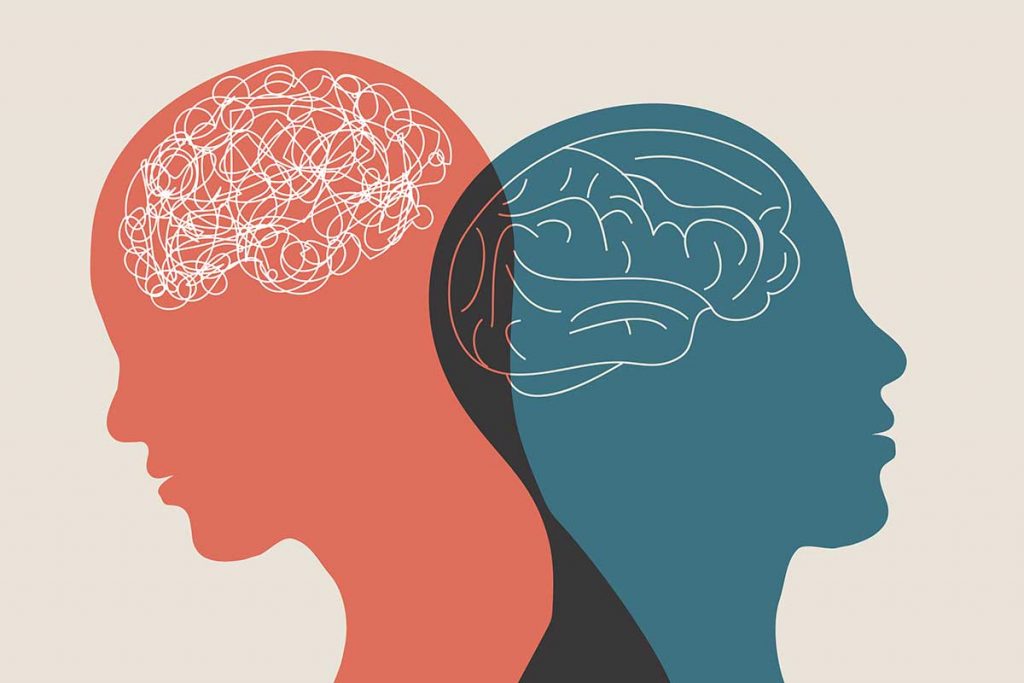When an individual suffers from both a mental health condition and an addiction problem, it is called dual diagnosis. It is estimated that 9.2 million adults in the United States suffer from a co-occurring disorder, as reported by SAMHSA. Dual diagnosis can be a challenging condition to manage and can lead to severe consequences if not addressed promptly. Let’s go over the risk factors and potential consequences of the disorder.
Risk Factors of Dual Diagnosis
- Genetic Predisposition: Individuals with a family history of mental health or substance abuse disorders may have an increased risk of developing dual diagnosis
- Trauma: Mental health conditions including PTSD, depression, and anxiety can all be triggered by stressful experiences
- Environmental Factors: Stress, poverty, isolation, which are common in the general population, increase the likelihood
- Substance Abuse: Alcohol and drug abuse can cause changes in the brain’s chemistry and lead to the development of mental health disorders like schizophrenia, depression, and anxiety
- Mental Health Disorders: Substance addiction is a common coping mechanism for those with mental health problems like depression and anxiety
Consequences of Dual Diagnosis
- Poor Physical Health: Substance abuse can lead to poor physical health, including liver disease, heart disease, and respiratory problems
- Poor Mental Health: Dual diagnosis can lead to poor mental health outcomes, including increased symptoms of depression, anxiety, and suicidal ideation
- Relationship Problems: Individuals with dual diagnosis may have difficulty maintaining healthy relationships due to their symptoms and substance abuse
- Legal Problems: Substance abuse can lead to legal problems, including arrest and incarceration. Individuals may also struggle to maintain employment or access necessary healthcare, leading to further legal and financial problems
- Social Isolation: Individuals with dual diagnosis may struggle to maintain social connections and experience social isolation
Treatment Options
Treatment typically involves a combination of medication, therapy, and support groups. The goals for treatment includes managing symptoms of mental health disorders, addressing substance abuse, and promoting overall health and well-being.
Therapy: Therapy can be beneficial for managing symptoms of mental health disorders and substance abuse. The goal of anxiety is to help patients recognize and alter unhelpful ways of thinking and behaving.
Medication: Medication is used to manage symptoms of mental health disorders, including depression and anxiety. A mental health practitioner can prescribe drugs like antidepressants and anxiety medication.
Diagnosed individuals may benefit from attending a support group like Narcotics Anonymous (NA) or Alcoholics Anonymous (AA). Connecting with others who are going through similar experiences can help in the recovery process.
In addition to these treatment options, individuals may also benefit from lifestyle changes such as regular exercise, healthy eating, and stress-reduction techniques such as yoga and meditation.
Learn More About Dual Diagnosis Treatment in Florida
Compassion Behavioral Health understands the difficulty and distress that those with dual diagnosis face. Our team of experienced professionals uses evidence-based treatments, such as cognitive behavioral therapy (CBT) and dialectical behavior therapy (DBT), along with medical interventions tailored to each individual’s unique needs. If you or a loved one is suffering from dual diagnosis, please don’t hesitate to reach out to Compassion Behavioral Health today so we can help find a treatment plan that works best for you.



